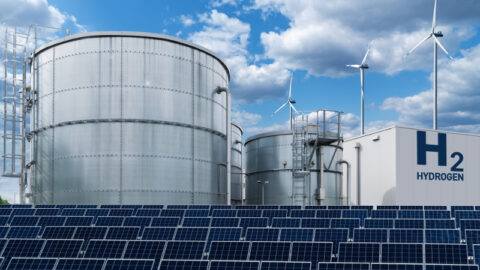Energy ministers from Australia’s State and Territory Governments will be taking the National Energy Guarantee (NEG) to the next stage, following the COAG Energy Council’s meeting in Sydney to discuss whether it would progress.
It reportedly took ministers less than two hours to reach the decision about Australia’s potential national energy policy, which will be further explored in the Coalition party room meeting on Tuesday 14 August.
While the NEG is now guaranteed to progress to this next stage, no final decision on the policy has been made.
Prime Minister, Malcolm Turnbull, along with Federal Minister for Energy and the Environment, Josh Frydenberg, will now talk federal legislation. This new legislation will set the emissions target at a 26 per cent reduction by 2030 from 2005 levels.
Clean Energy Council Chief Executive, Kane Thornton, said the clean energy industry believes the policy framework of the NEG could work if the emissions reduction target is substantially increased and a range of other design issues are addressed.
Mr Thornton said that if the NEG is going to drive the new energy investment that is crucial to lowering power prices, the proposed target of 26 per cent emissions reduction needs to be higher.
“The NEG is a complex reform that requires careful consideration and design. Today’s discussions must be followed by genuine negotiation on the outstanding critical issues,” Mr Thornton said.
“Many of the conditions proposed by jurisdictions such as Victoria, Queensland and the ACT are reasonable and are supported by the clean energy industry, including the call for more frequent reviews and the inclusion of a mechanism that prevents the emissions reduction target being cut in the future.
“We call on the Federal Government and all state and territories to keep cool heads and negotiate in good faith to find a compromise that will provide the long-term investment certainty needed to deliver new clean energy generation,” Mr Thornton said.
Mr Frydenberg was confident ahead of the meeting, telling ABC Radio that there was an “overwhelming appreciation of the importance of the National Energy Guarantee.”
“I’m confident we will take the National Energy Guarantee forward at today’s meeting… Nobody wants to re-litigate the mistakes of the past, and there have been plenty of those, but we do want to provide solutions for the future,” Mr Frydenberg said during his interview with ABC Radio.
While the outcome is being heralded as a “win” for Mr Frydenberg and the Turnbull Government, concerns over the policy are still being expressed.
The Victorian State Government publicly withheld support for the NEG ahead of the COAG Energy Council meeting, stating that it would not approve of the policy until emissions targets were heightened, and that the policy needed further work.
Queensland is reported to have supported Victoria’s stance on the policy, also objecting to a low emissions target. The Sydney Morning Herald reported that Queensland requested protection for the states’ separate renewable energy plans.
While agreeing to keep talking, the Smart Energy Council has stated that these states have insisted on seeing detailed legislation, and several have set ‘red line’ conditions before they will lock in behind the NEG.
A copy of the communique, obtained by Fairfax Media, stated that it has agreed to the release of an exposure draft of the national electricity law amendments, with states to be given a copy of Commonwealth draft legislation for the NEG following endorsement by the Coalition party room.
Ahead of the COAG Energy Council meeting, the peak body for the solar, storage and smart energy industry, the Smart Energy Council, called on all governments not to endorse the National Energy Guarantee.
Pointing to the new analysis of the NEG, the Smart Energy Council Chief Executive, John Grimes, said ,“The National Energy Guarantee is a dud. It promises the world, and delivers little.”
“It doesn’t deliver any new investment in renewables or any form of electricity generation, it doesn’t cut coal pollution, it doesn’t reduce power bills, it can’t be easily changed and it hasn’t even been endorsed by the Coalition Party Room.”
More information about the future of the NEG will be available following the 14 August party room meeting.
“The Coalition party room is the biggest risk to energy and price stability – and has been for 10 years – so we need that party room certainty,” said Queensland’s acting Energy Minister, Cameron Dick, in a statement made by Fairfax Media.















